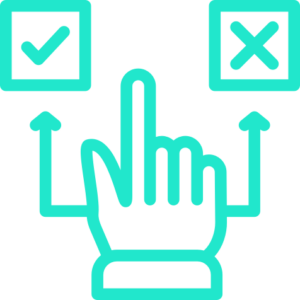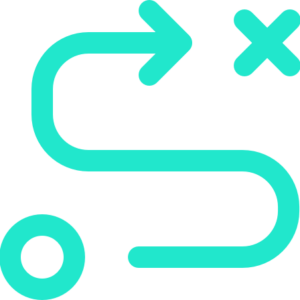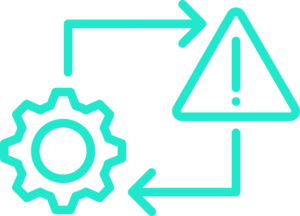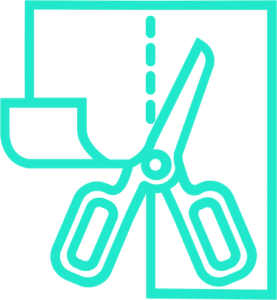
Do you want to know more about retail competitive intelligence?
In the UK retail sector, competition is fierce and unrelenting. Retailers face constant pressure to adapt. Whether it’s shifting consumer preferences and buying behaviours. Or evolving technology and dynamic market conditions.
So to stay ahead, businesses need to be smarter and more agile. They need a clearer, fuller and more up-to-date picture of the market. In fact, 35% of marketers say poor data quality impacts their ability to target consumers.

This is where retail competitive intelligence comes into play. Understanding competitors, market trends and consumer behaviours can give you an advantage.
What is Retail Competitive Intelligence?
Retail competitive intelligence refers to insights a retailer can use to make decisions. Or to the process of gathering and analysing them.
Retail competitive intelligence often relates to the competition’s strategic and tactical activities. Or to market trends and updates, such as regulatory changes.
There are three primary methods for gathering this intelligence:
- Manual Tracking: This involves assigning employees to track competitors and the market. They look for and report back on changes that could impact your business.
- Market research: Firms produce detailed insights known as State-of-the-Market Reports. They provide comprehensive analysis on various market aspects. But they can be costly and the insights can date.
- AI Competitive Intelligence: Modern AI platforms automate data gathering, providing real-time updates. They track changes in real-time and offer curated insights through alerts or reports.
We’ll explore these methods in more detail later.
For now, let’s discuss the benefits of retail competitive intelligence.
Benefits of Retail Competitive Intelligence
Enhanced Decision-Making

Retail competitive intelligence gives you a clear view of the market and competition. This clarity helps you make informed decisions about product development, pricing and marketing. With accurate data, you reduce guesswork, leading to better business outcomes.
Strategic Development

Insights into new trends and potential disruptions can inform long-term strategies. You can anticipate changes and adapt. So you can position your business for success.
Risk Mitigation

Competitive intelligence helps you identify potential threats early on. This allows you to take preventive measures. You can take them before these threats harm your business. New competitors are entering the market. Consumer behavior is shifting. You can stay ahead.
Tailoring Product Lines

Insights from competitive intelligence can guide you in refining your product offerings. You can find gaps in the market. You can launch new products to meet emerging consumer needs. Or stop selling products that aren’t doing well.
Elevating Customer Experience

By analysing your competitors’ customer service practices, you can enhance your own. This might involve improving delivery times. Or offering better return policies. Or creating more personalised customer interactions.
Refining Marketing Efforts

Imagine understanding your competitors’ tactics and successes. You can use that insight to evolve and improve your own approach. This could mean exploring new advertising channels or adopting innovative promotional techniques.
Retail Competitive Intelligence – What to Track
Effective retail competitive intelligence requires tracking several key components:
Market Analysis
Market analysis is about understanding the broader context in which your business operates. It involves examining economic indicators, industry trends, and technological innovations.
- Economic Indicators. Track metrics such as inflation, consumer spending, and employment rates. These indicators provide a macro view of market health and consumer purchasing power. So you can shape your retail strategies.
- Industry Trends. Identify and analyse trends in your sector. From the rise of discount retailers to growing consumer interest in sustainability. Staying informed about these trends allows you to adapt and pivot at the right time.
- Technological Innovations. Keep abreast of new technologies that are shaping the retail landscape. Innovations like AI for personalisation or augmented reality for shopping experiences. Or blockchain for supply chain transparency. All can impact your business.
Competitor Benchmarking
Competitor benchmarking involves analysing your key competitors’ strategies. This includes their product offerings, marketing tactics, and customer service approaches.
- Product Offerings. Test the range, quality and pricing of your competitors’ products. This helps you identify gaps in your offerings and areas for improvement.
- Marketing Strategies. Examine your competitors’ marketing efforts across different channels. Analyse their digital campaigns, social media presence and promotional activities. Gain insights into effective tactics.
- Customer Service Tactics. Study your competitors’ customer service strategies to identify best practices. Find areas where you can differentiate your business. Look at response times, return policies and the quality of customer interactions.
Consumer Insights
Understanding your consumers is crucial. Consumer insights encompass demographic data, buying behaviours, online engagement and sentiment analysis.
- Demographics. Know the demographics of your target audience – such as age, gender, income, and location. It can help you tailor your products to their needs and preferences. The same with messaging and promotions.
- Buying Behaviours. Understand when and where your customers prefer to shop. This includes their preferences for online versus in-store shopping and preferred payment methods. This information informs decisions about store layouts, product placements, and promotions.
- Online Engagement. Track online discussions about your brand and competitors. Gain real-time insights into consumer opinions and emerging issues. Social media platforms and review sites are valuable sources for this information.
- Sentiment Analysis. Use sentiment analysis tools to measure consumer attitudes towards your brand and competitors. This can reveal areas for improvement. Or point to new trends, helping you adapt strategies to enhance customer satisfaction.
How to Gather Retail Competitive Intelligence
Manual Tracking for Retail Competitive Intelligence
Manual tracking involves having employees or teams track competitors and market trends. They search for changes that could affect your business. This method requires much time and resources. It can be less efficient at capturing real-time data. Modern methods have made manual tracking outdated. But, it can still be useful for smaller operations. Or, for specific, targeted intelligence gathering.
Insight Reports for Retail Competitive Intelligence
Insight reports from market research firms provide thorough analysis. They cover many aspects of the market. The reports offer valuable data and trends. But, they can be expensive and may quickly become outdated. They are best for gaining a broad understanding of market conditions. They also help with understanding competitor strategies.
AI Platforms for Retail Competitive Intelligence
AI platforms have revolutionised the way businesses gather competitive intelligence. These platforms automate the process, providing real-time data and insights.
- Real-Time Data Gathering. AI platforms continuously track the market and competitors, collecting data in real-time. This ensures that you have the latest information at your fingertips.
- Customisable Reports. Many AI platforms offer bespoke reports tailored to your specific needs. Human market experts curate and analyse the data on your behald. This allows you to focus on the most relevant data and insights for your business.
- Cost-Effective. Such platforms often prove more cost-effective in the long run. Particularly when compared to manual tracking or purchasing insight reports.
- Scalability. AI platforms can easily scale as your business grows. This makes them suitable for businesses of all sizes.
Retail Competitive Intelligence FAQs
- What is the best time for a retailer to use competitive intelligence? Retailers should use competitive intelligence continuously to stay ahead in the market. It’s especially crucial when planning product launches. Likewise for adjusting pricing strategies or responding to competitor moves.
- What are the biggest advantages of AI retail competitive intelligence over manual methods? AI-based competitive intelligence offers real-time data collection and analysis. This provides faster insights into competitor activities and market trends. It saves time and resources compared to manual tracking.
- How often should a retailer conduct competitive intelligence? Retailers should conduct competitive intelligence on an ongoing basis. This ensures they stay up-to-date with market changes and competitor strategies.
- What trends have influenced the need for retail competitive intelligence? Increased consumer demand for personalisation. Rapid technological advancements in retail. The rise of e-commerce. All have heightened the need for retailers to gather and analyse competitive intelligence. These trends impact consumer behaviour and market dynamics.
- What are the future trends for retail competitive intelligence? The future lies in deeper integration with AI and machine learning. This includes predictive analytics, enhanced data visualisation tools and AI-driven customer insights. Retailers could come to rely on AI to forecast trends. Or to optimise pricing strategies and deliver personalised customer experiences.

